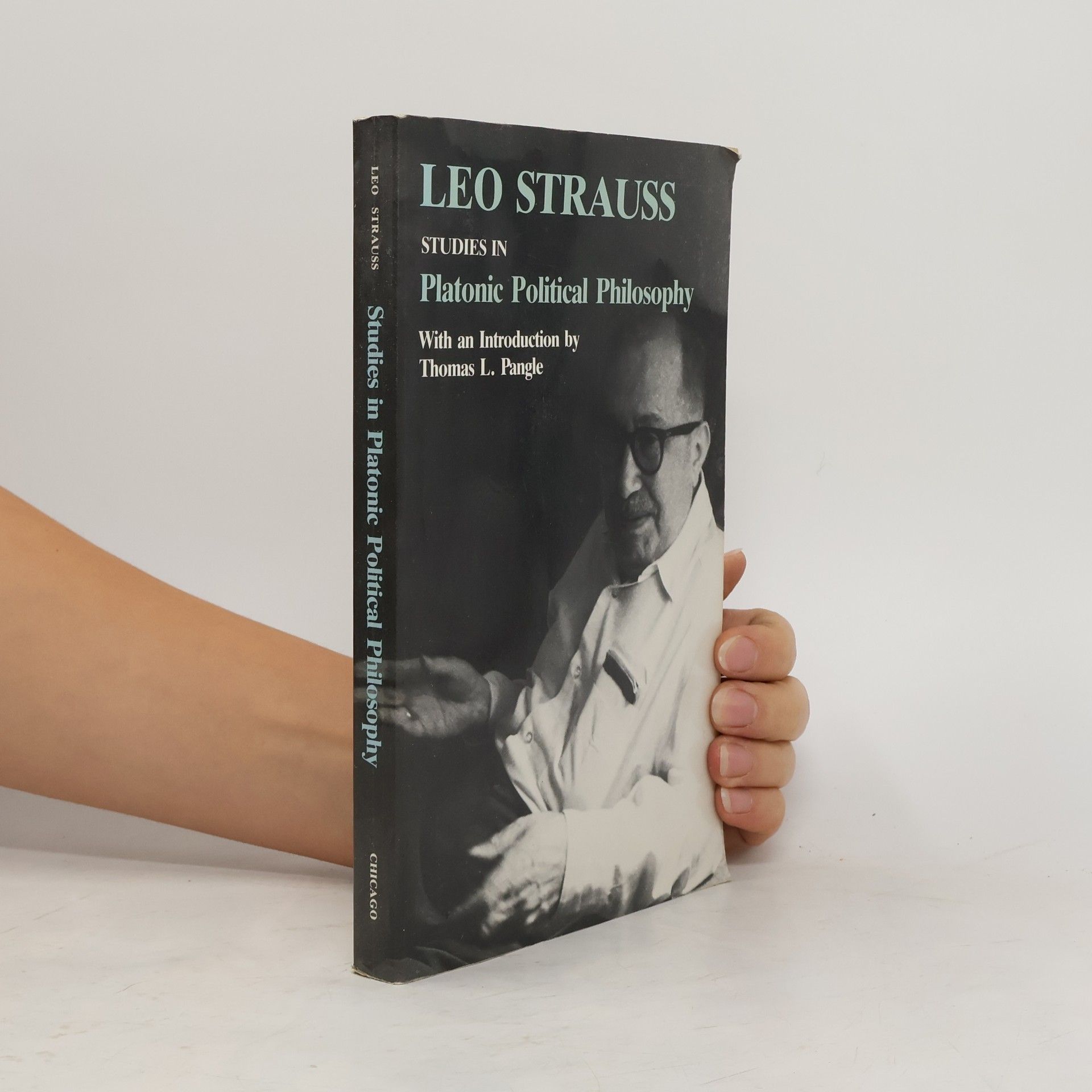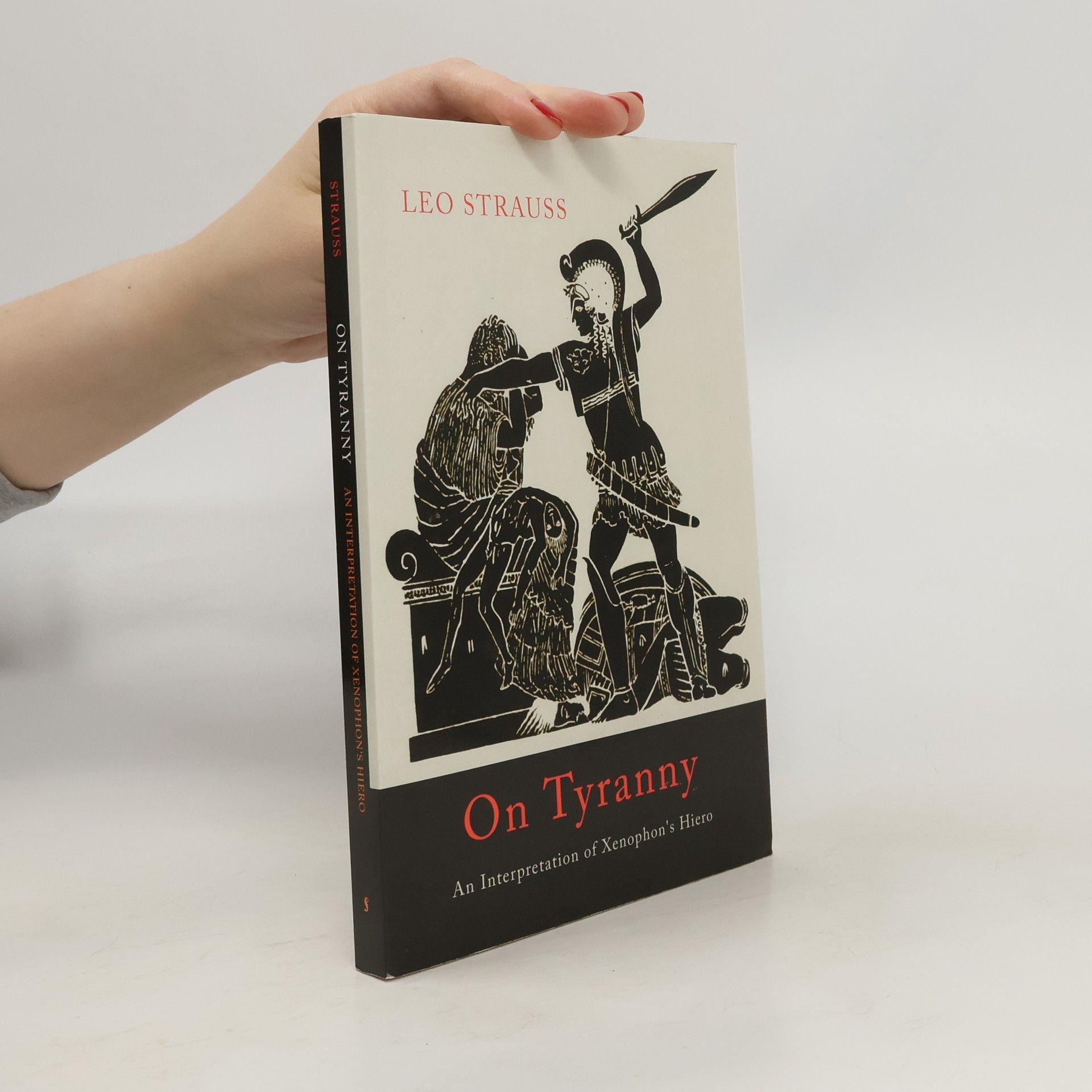První díl dvousvazkového výboru nejvýznamnějších esejů L. Strausse, tvůrce svébytného pojetí politické filosofie a zakladatele vlivné školy politického myšlení. Výbor je koncipován tak, aby čtenáře seznámil s oběma pilíři Straussovy koncepce, v níž systematická zkoumání jsou vždy opřena o výsledky bádání v oblasti dějin politického myšlení. První svazek obsahuje texty zkoumající pojmy politické filosofie, modernity, dějin a přirozeného zákona.
Leo Strauss Knihy
Leo Strauss byl německo-americký filozof a filolog, který se zaměřoval na starořecké texty. Jeho práce se hluboce zabývá politickou filozofií a klasickým myšlením, přičemž zkoumá vztah mezi filozofií a politikou v průběhu dějin. Strauss je známý svým jedinečným přístupem k interpretaci filozofických textů, často odhalujícím skryté významy a podtexty. Jeho myšlenky nadále ovlivňují současné debaty o politice a filozofii.


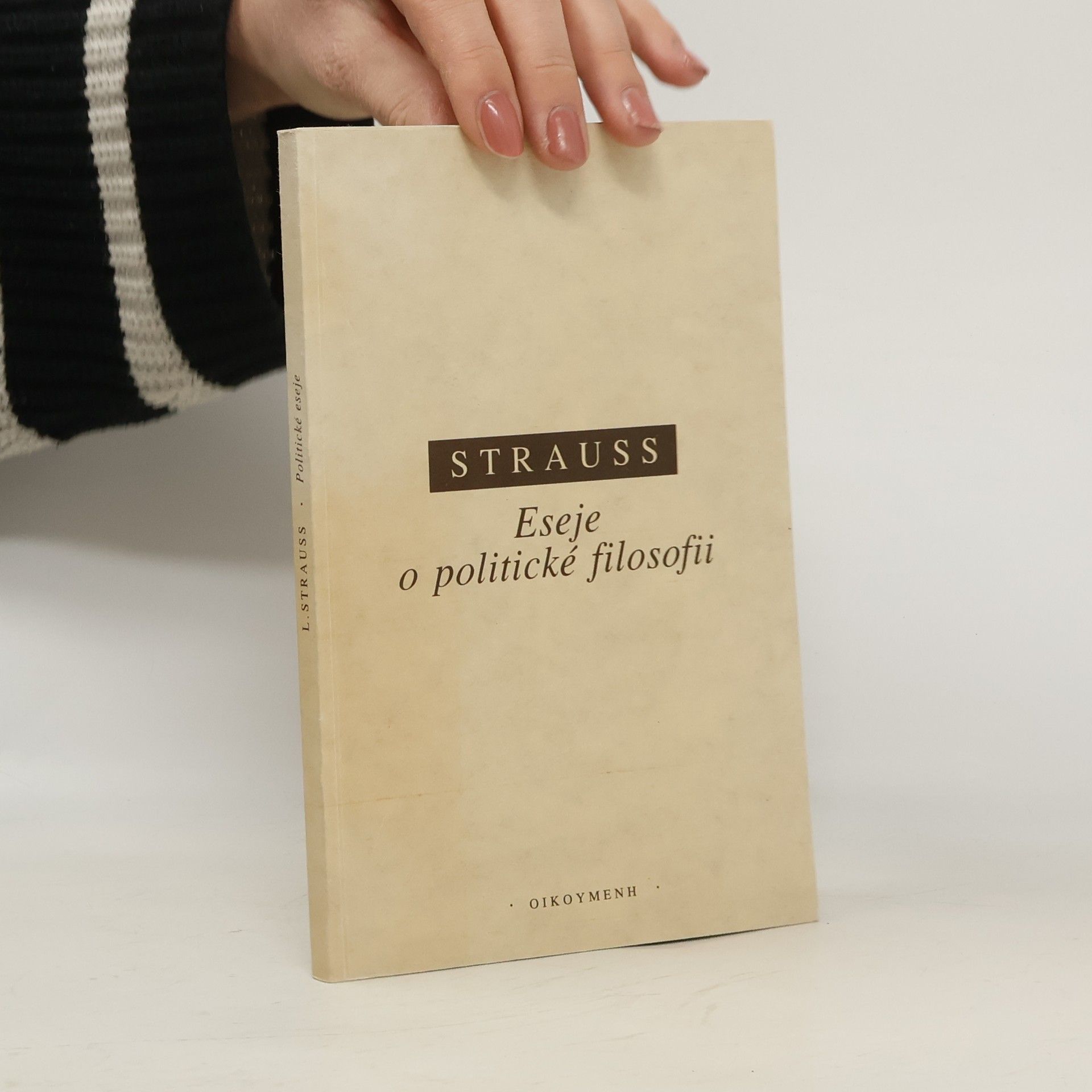

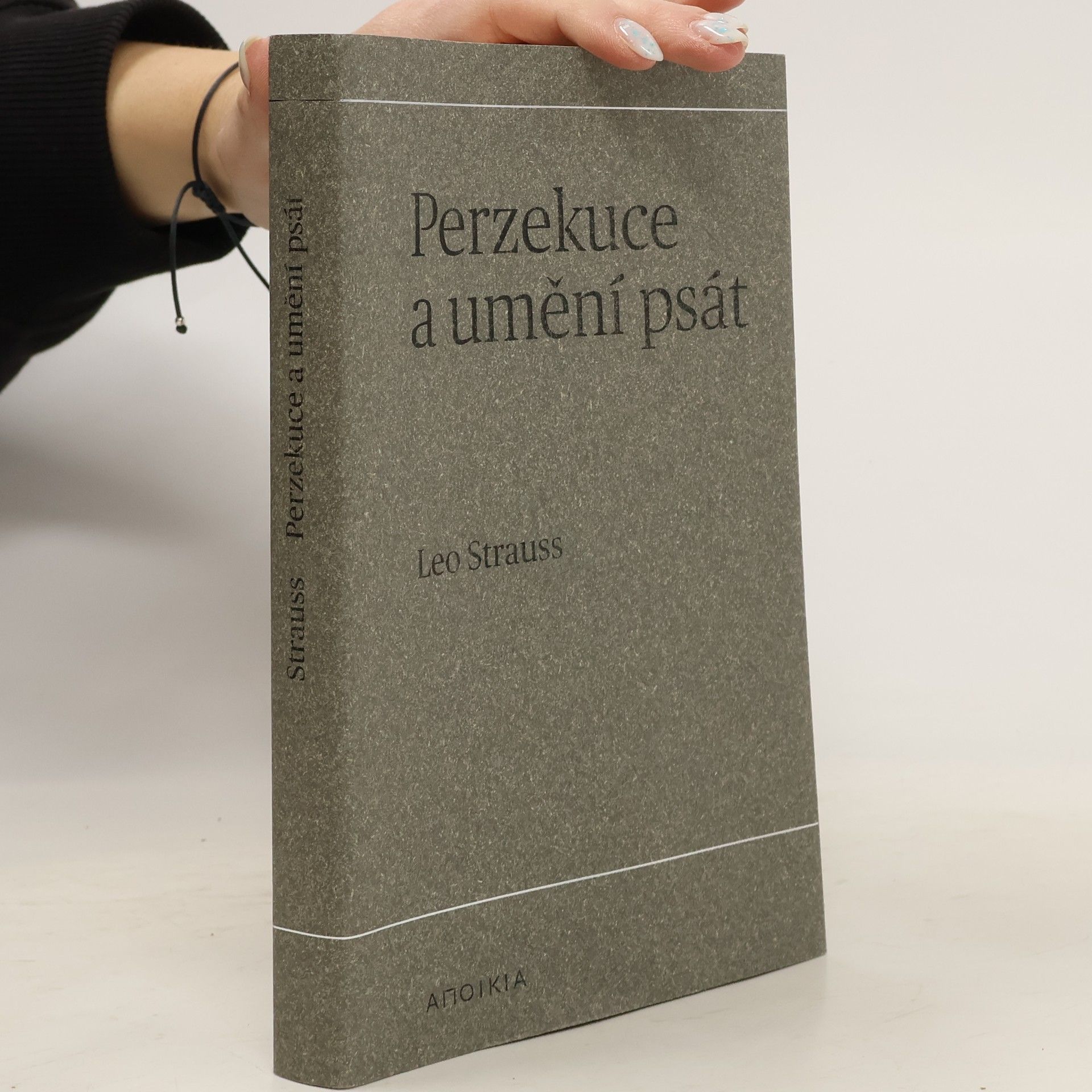
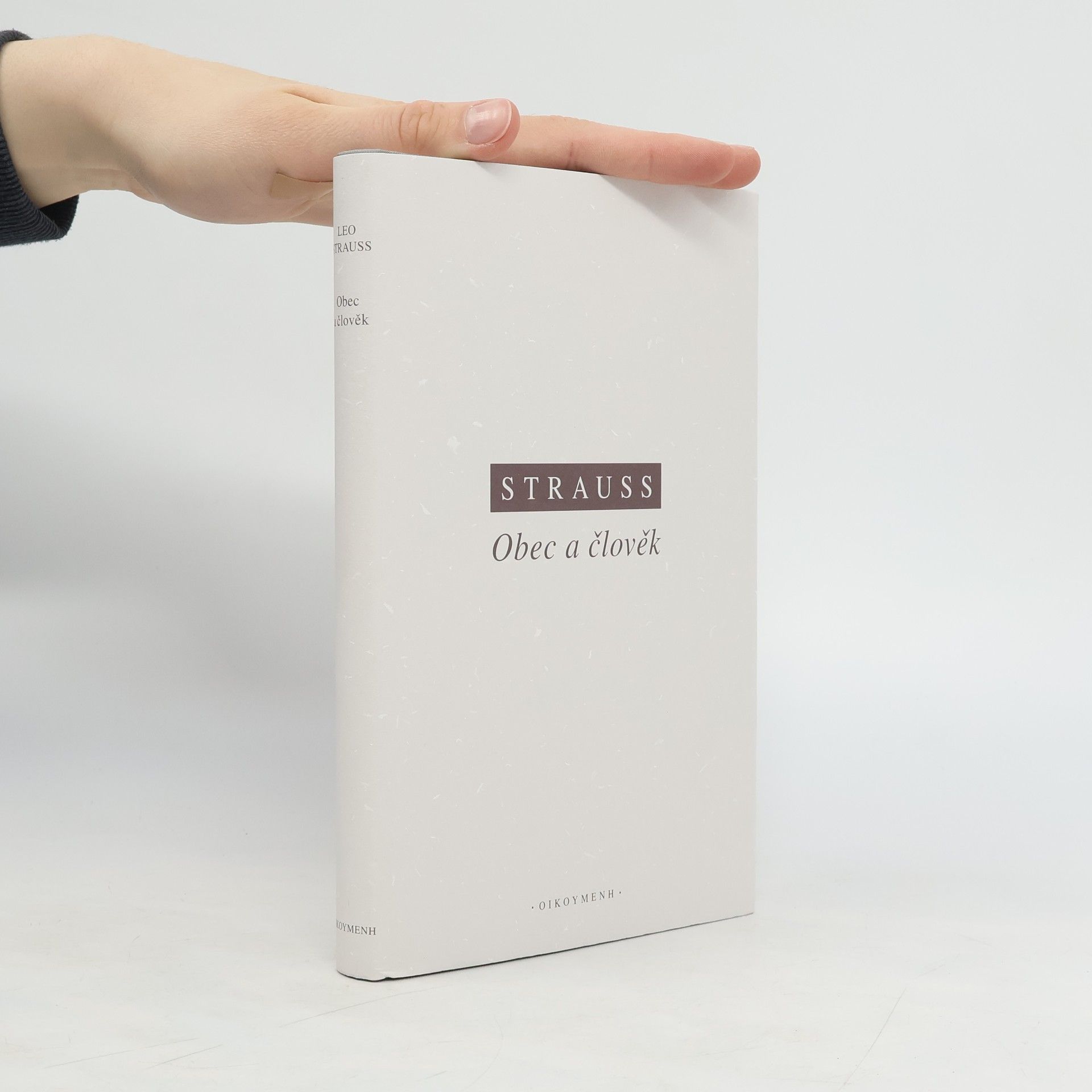

Kniha sestává z eseje o Aristotelově Politice, Platónově Ústavě a o Thúkydidových Dějinách peloponnéské války. Všechny tři eseje slouží autorovi k tomu, aby na klasické politické filosofii ukázal ideologičnost moderní politické filosofie.
Perzekuce a umění psát
- 240 stránek
- 9 hodin čtení
Kniha Perzekuce a umění psát, již mnozí znalci Straussovy filosofie považují za jeho vůbec nejdůležitější dílo, je souborem esejů, jež spojuje téma vztahu politiky a filosofického spisovatelství. Leo Strauss ukazuje na výkladu děl tří židovských myslitelů (Maimonides, ha-Levi, Spinoza), že vznik řady filosofických spisů, včetně těch náležejících do hlavního kánonu západní tradice, byl zásadně ovlivněn snahou jejich autorů vyhnout se politickému pronásledování. Tato snaha vedla k vytvoření specifického umění, jež autorovi umožňuje sdělit, co sdělit chce, aniž by to přitom — s ohledem na politickou situaci — musel říkat otevřeně. Toto spisovatelské umění, jež je vlastní celé tradici politického myšlení až do osvícenství, zahrnuje kombinaci spolehlivé komunikace se znalým čtenářem a dovedného skrývání důležitých částí nauk, zvláště těch, které mohou být považovány za neortodoxní.
Ve svém nejznámějším díle Přirozené právo a dějiny Leo Strauss popisuje a hodnotí důvody, které vedly k odmítnutí přirozeného práva. Vysvětluje důsledky tohoto odmítnutí i to, proč argumenty proti přirozenému právu nejsou platné. Těm, kdo ho odmítli ve jménu bezbřehé tolerance, připomíná paradox jejich volby. Podle něj pak totiž platí, že „čím více vzděláváme rozum, tím více vzděláváme nihilismus“. A „nevyhnutelným praktickým důsledkem nihilismu je fanatické tmářství a zpátečnictví“, připomíná Strauss.
Leo Strauss on Plato's "Protagoras"
- 416 stránek
- 15 hodin čtení
The seminar focuses on Socrates' dialogue with the sophist Protagoras, exploring themes such as the nature of virtue, the distinction between Socratic and Sophistic political arts, and the interplay of knowledge and ethics. Strauss examines the teachability of virtue and its connections to courage, justice, and wisdom, while also addressing the complexities of rhetoric and the significance of myth. This insightful analysis, edited by Robert Bartlett, highlights Strauss's Platonist perspective and his deep engagement with key philosophical questions surrounding how one ought to live.
Jewish Philosophy and the Crisis of Modernity
Essays and Lectures in Modern Jewish Thought
- 524 stránek
- 19 hodin čtení
The book delves into the challenges faced by Jews and Judaism in the context of modernity, examining the dilemmas that arise from contemporary life. It offers a thorough analysis of these issues and proposes solutions aimed at addressing the unique struggles within the Jewish community. Through this exploration, it seeks to illuminate the ongoing relevance of Jewish identity and beliefs in a rapidly changing world.
One of the outstanding thinkers of our time offers in this book his final words to posterity. Studies in Platonic Political Philosophy was well underway at the time of Leo Strauss's death in 1973. Having chosen the title for the book, he selected the most important writings of his later years and arranged them to clarify the issues in political philosophy that occupied his attention throughout his life.As his choice of title indicates, the heart of Strauss's work is Platonism—a Platonism that is altogether unorthodox and highly controversial. These essays consider, among others, Heidegger, Husserl, Nietzsche, Marx, Moses Maimonides, Machiavelli, and of course Plato himself to test the Platonic understanding of the conflict between philosophy and political society. Strauss argues that an awesome spritual impoverishment has engulfed modernity because of our dimming awareness of that conflict.Thomas Pangle's Introduction places the work within the context of the entire Straussian corpus and focuses especially on Strauss's late Socratic writings as a key to his mature thought. For those already familiar with Strauss, Pangle's essay will provoke thought and debate; for beginning readers of Strauss, it provides a fine introduction. A complete bibliography of Strauss's writings if included.
On Tyranny
- 136 stránek
- 5 hodin čtení
"On Tyranny" by Leo Strauss explores Xenophon's dialogue "Hiero," where the tyrant Hiero and poet Simonides debate tyranny's pros and cons. Strauss critiques modern liberalism's tendency toward nihilism, linking it to both brutal regimes and the aimlessness of contemporary society. He advocates a return to classical political philosophy for guidance.
The City and Man
- 254 stránek
- 9 hodin čtení
The City and Man consists of provocative essays by the late Leo Strauss on Aristotle's Politics , Plato's Republic , and Thucydides' Peloponnesian Wars . Together, the essays constitute a brilliant attempt to use classical political philosophy as a means of liberating modern political philosophy from the stranglehold of ideology. The essays are based on a long and intimate familiarity with the works, but the essay on Aristotle is especially important as one of Strauss's few writings on the philosopher who largely shaped Strauss's conception of antiquity. The essay on Plato is a full-scale discussion of Platonic political philosophy, wide in scope yet compact in execution. When discussing Thucydides, Strauss succeeds not only in presenting the historian as a moral thinker of high rank, but in drawing his thought into the orbit of philosophy, and thus indicating a relation of history and philosophy that does not presuppose the absorption of philosophy by history.
